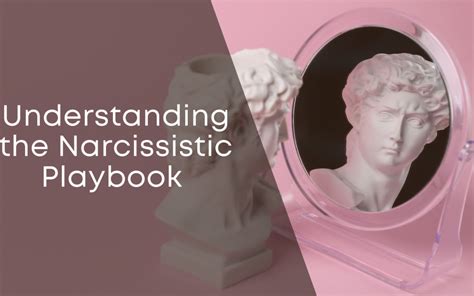
The word “literally” has emerged as a significant dating dealbreaker for many women, according to a recent survey and social media discussions, signaling a decline in perceived intelligence and communication skills among potential partners. Women are increasingly turned off by the overuse or misuse of the word, viewing it as a sign of verbal imprecision and a lack of articulateness.
The dating world is fraught with potential pitfalls, and now, it seems a single word can determine a suitor’s fate. A growing number of women are citing the overuse or incorrect use of the word “literally” as an instant turn-off in potential partners, according to recent surveys and anecdotal evidence shared across social media platforms. The seemingly innocuous adverb, intended to emphasize the truth or accuracy of a statement, has become a symbol of verbal sloppiness and a perceived lack of intelligence.
The issue gained traction after a viral TikTok video highlighted the aversion some women have to men who frequently pepper their speech with “literally.” The video sparked a broader conversation, with many women echoing the sentiment and sharing their own experiences of being put off by the word’s misuse. One woman commented, “It’s an immediate red flag. It makes them sound uneducated and like they can’t express themselves properly,” as reported by Yahoo Lifestyle.
While the use of “literally” has evolved over time, with dictionaries now acknowledging its use as an intensifier even when not strictly literal, its frequent and often unnecessary application remains a point of contention for many. For some, it represents a broader concern about declining communication skills and a lack of attention to detail. “It’s not just about the word itself,” explained another woman in an online forum. “It’s about what it represents – a lack of precision in thought and expression. If they can’t use language carefully, what else are they being careless about?”
The aversion to “literally” is not simply a matter of linguistic purism. It reflects a deeper desire for intellectual connection and effective communication in a romantic partner. Women who find the word grating often associate it with a lack of self-awareness and a tendency to rely on clichés. In a dating landscape already complicated by superficiality and fleeting connections, the ability to articulate thoughts clearly and thoughtfully is highly valued.
The rise of online dating has further amplified the importance of language in forming initial impressions. With limited opportunities to assess a potential partner’s personality and character, every word counts. A poorly written profile or a clumsy text exchange can be enough to send a potential match running for the hills. In this context, the misuse of “literally” becomes a glaring red flag, signaling a lack of attention to detail and a potential communication mismatch.
Dating coaches and relationship experts suggest that while grammatical pet peeves may seem trivial, they can be indicative of deeper compatibility issues. Shared values, intellectual curiosity, and effective communication are all essential ingredients for a successful relationship. If one partner is consistently annoyed by the other’s language habits, it can create friction and undermine the foundation of the relationship.
The “literally” debate also raises broader questions about language evolution and the subjective nature of grammar rules. While some argue that language is constantly evolving and that prescriptive grammar rules are outdated, others maintain that clear and precise communication is essential for mutual understanding. The differing viewpoints highlight the challenges of navigating the complexities of language in the context of modern relationships.
Ultimately, the aversion to “literally” is a personal preference. While it may be a dealbreaker for some, others may not even notice or care. However, the widespread discussion surrounding the issue underscores the importance of self-awareness and effective communication in the dating world. Being mindful of one’s language habits and striving to express oneself clearly and thoughtfully can go a long way in making a positive impression and fostering meaningful connections.
Expanded Details and Context:
The phenomenon of “literally” as a dating dealbreaker is symptomatic of a broader trend in modern dating where subtle cues and communication styles hold significant weight. As dating apps and online platforms become increasingly prevalent, initial impressions are often formed based on limited information, making linguistic choices all the more critical.
The Evolution of “Literally”:
The word “literally” has undergone a significant transformation in its usage over the past few decades. Originally, it was intended to convey that a statement should be taken in its exact, non-figurative sense. For example, “The building literally burned to the ground” meant that the building was, in fact, consumed by flames. However, the word has increasingly been used as an intensifier, similar to “very” or “really,” even when the statement is not meant to be taken literally. This shift has led to situations where people say things like, “I was literally dying of laughter,” even though they are not actually on the verge of death.
This evolution has been documented and acknowledged by major dictionaries, including the Oxford English Dictionary and Merriam-Webster. They recognize the use of “literally” as an intensifier as a valid, albeit controversial, usage. However, this acceptance has not quelled the debate over its appropriateness, particularly in formal settings or when precision is valued.
Communication and Compatibility:
In the context of dating, the use of “literally” becomes more than just a grammatical issue. It becomes a marker of communication style and intellectual compatibility. For some, it signals a lack of attention to detail and a tendency to rely on imprecise language. This can be particularly off-putting for individuals who value clarity, precision, and effective communication.
The aversion to “literally” can also be seen as a reflection of broader societal concerns about declining communication skills. In an age of instant messaging, social media, and abbreviated language, some worry that people are losing the ability to articulate their thoughts clearly and thoughtfully. The misuse of “literally” becomes a symbol of this decline, representing a broader trend towards verbal sloppiness.
First Impressions and Online Dating:
The rise of online dating has amplified the importance of language in forming first impressions. Dating apps and websites provide limited opportunities to assess a potential partner’s personality and character. As a result, every word, every sentence, and every punctuation mark becomes a potential clue. A poorly written profile or a clumsy text exchange can be enough to deter a potential match.
In this context, the misuse of “literally” can be a significant red flag. It can signal a lack of attention to detail, a lack of self-awareness, and a potential communication mismatch. For individuals who value intelligence, articulateness, and effective communication, it can be an instant turn-off.
Dating Coaches and Relationship Experts:
Dating coaches and relationship experts often advise their clients to be mindful of their language habits and to strive for clear and effective communication. While they acknowledge that grammatical pet peeves may seem trivial, they also recognize that they can be indicative of deeper compatibility issues.
Shared values, intellectual curiosity, and effective communication are all essential ingredients for a successful relationship. If one partner is consistently annoyed by the other’s language habits, it can create friction and undermine the foundation of the relationship. In some cases, it can even be a sign of a deeper incompatibility.
Subjectivity and Personal Preferences:
It is important to note that the aversion to “literally” is a personal preference. While it may be a dealbreaker for some, others may not even notice or care. Some individuals may even find the use of “literally” as an intensifier to be endearing or humorous.
Ultimately, the key is to be self-aware and to communicate clearly and honestly. If you are someone who frequently uses “literally,” be aware that it may be off-putting to some potential partners. If you are someone who is bothered by the misuse of “literally,” be upfront about your preferences.
The Bigger Picture: Language and Connection
The “literally” controversy highlights a more profound aspect of human connection: the role of language in shaping perceptions and fostering relationships. Language is not merely a tool for conveying information; it is also a means of expressing identity, signaling values, and establishing rapport. The words we choose, the way we structure our sentences, and the nuances of our communication style all contribute to the image we project and the connections we forge.
In the context of dating, where initial impressions can be fleeting and superficial, language becomes an even more critical factor. Potential partners often rely on linguistic cues to assess intelligence, emotional maturity, and compatibility. A well-crafted profile, a thoughtful text message, or a witty conversation can make all the difference in capturing someone’s attention and sparking a meaningful connection. Conversely, grammatical errors, clichés, or the overuse of certain words can create a negative impression and lead to rejection.
Beyond “Literally”: Other Linguistic Pet Peeves
While “literally” has emerged as a particularly prominent dating dealbreaker, it is by no means the only linguistic quirk that can irk potential partners. Other common grammatical pet peeves include:
- Misuse of “there,” “their,” and “they’re”: This classic error often signals a lack of attention to detail and a weak grasp of basic grammar.
- Incorrect use of “your” and “you’re”: Similar to the “there/their/they’re” confusion, this mistake can be a major turn-off for grammar enthusiasts.
- Using “loose” instead of “lose”: This homophone error is a common source of frustration for those who value precision in language.
- Ending sentences with prepositions: While not technically grammatically incorrect, some people find this stylistic choice to be awkward and clunky.
- Overuse of slang or jargon: While using slang can be appropriate in certain contexts, excessive use can make someone sound immature or uneducated.
- Typos and misspellings: In the age of spell check and autocorrect, typos and misspellings can be seen as a sign of carelessness or laziness.
The Importance of Self-Awareness
The key takeaway from the “literally” debate is the importance of self-awareness in communication. Being mindful of one’s language habits, both conscious and unconscious, can help individuals make a positive impression and avoid inadvertently alienating potential partners. This involves paying attention to grammar, vocabulary, and overall communication style.
Self-awareness also involves being sensitive to the preferences and expectations of others. While it is not necessary to completely change one’s language habits to please everyone, it is important to be respectful of different communication styles and to avoid using language that is likely to be offensive or annoying.
Building Genuine Connections
Ultimately, the goal of dating is to build genuine connections based on shared values, mutual respect, and authentic communication. While linguistic preferences can play a role in initial impressions, they should not be the sole determinant of compatibility. It is important to look beyond superficial quirks and to focus on the deeper qualities that make a relationship meaningful and fulfilling.
Effective communication, including active listening, empathy, and clear expression, is essential for building strong and lasting relationships. By striving to communicate with clarity, honesty, and respect, individuals can increase their chances of finding a partner who truly appreciates them for who they are.
The Future of Language and Dating
As language continues to evolve and dating platforms become more sophisticated, the interplay between communication and connection will undoubtedly become even more complex. New technologies, such as artificial intelligence and natural language processing, may offer new ways to assess compatibility and facilitate communication. However, the fundamental principles of effective communication – clarity, empathy, and respect – will remain essential for building meaningful relationships.
The Role of Education and Awareness
Education plays a crucial role in shaping language skills and promoting effective communication. Schools and universities can help students develop a strong foundation in grammar, vocabulary, and rhetoric. They can also teach students to be critical thinkers and to analyze the nuances of language.
Furthermore, raising awareness about the impact of language on social interactions can help individuals become more mindful of their communication habits. Workshops, seminars, and online resources can provide valuable insights into effective communication strategies and help individuals improve their interpersonal skills.
Conclusion:
The “literally” debate is a microcosm of the broader challenges and opportunities of modern dating. In a world where initial impressions are often formed based on limited information, language becomes a powerful tool for shaping perceptions and fostering connections. By being mindful of their language habits, respecting different communication styles, and striving for clear and authentic communication, individuals can increase their chances of finding a partner who truly appreciates them for who they are. While “literally” might be a dealbreaker for some, the real key to successful dating lies in building genuine connections based on shared values, mutual respect, and effective communication.
Frequently Asked Questions (FAQ):
-
Why is the word “literally” considered a dating dealbreaker for some women?
- The overuse or misuse of “literally” is perceived by some women as a sign of a lack of intelligence, poor communication skills, and a lack of attention to detail. They associate it with verbal sloppiness and an inability to express oneself precisely. As one woman stated, “It’s an immediate red flag. It makes them sound uneducated and like they can’t express themselves properly.”
-
Is the aversion to “literally” just about grammar, or is there more to it?
- While grammar plays a role, the aversion often reflects deeper concerns about intellectual connection and effective communication. It can indicate a lack of self-awareness, reliance on clichés, and a general lack of precision in thought and expression. It signals to some a carelessness about communication that may translate to other aspects of a relationship.
-
How has online dating influenced the importance of language in forming initial impressions?
- Online dating environments provide limited opportunities to assess a potential partner’s personality. Therefore, every word and phrase becomes significant. A poorly written profile, text, or misused word, such as “literally,” can be enough to deter someone. Potential partners often rely on linguistic cues to assess intelligence, emotional maturity, and compatibility.
-
What do dating coaches and relationship experts say about grammatical pet peeves in relationships?
- Dating coaches suggest that while these pet peeves may seem trivial, they can indicate deeper compatibility issues. Shared values, intellectual curiosity, and effective communication are essential for successful relationships. Constant annoyance with a partner’s language can create friction and undermine the relationship’s foundation.
-
Is it wrong to use “literally” as an intensifier, even if it’s not technically literal?
- The use of “literally” as an intensifier is a controversial topic. While some dictionaries acknowledge this usage, many people still consider it incorrect. Whether it is “wrong” is a matter of personal preference and context. However, being aware of how it might be perceived is crucial, especially in dating, where first impressions matter.
-
Besides “literally”, what are some other linguistic pet peeves that might turn off potential partners?
- Other common pet peeves include the misuse of “there/their/they’re,” “your/you’re,” using “loose” instead of “lose,” ending sentences with prepositions, overuse of slang, and typos.
-
What does it mean to be self-aware in the context of language and dating?
- Being self-aware means being mindful of your own language habits, both conscious and unconscious, to make a positive impression and avoid alienating potential partners. It involves paying attention to grammar, vocabulary, and overall communication style and being sensitive to the preferences and expectations of others.
-
Should I change my language habits to please a potential partner?
- While it’s important to be self-aware and respectful of others’ preferences, it’s not necessary to completely change who you are. Focus on genuine communication and finding someone who appreciates you for who you are, quirks and all.
-
What if I’m the one who’s bothered by someone else’s language habits?
- Be upfront about your preferences, but do so in a respectful and non-judgmental way. Communicate your feelings calmly and explain why certain language habits bother you. The other person may or may not be willing to change, but open communication is key.
-
What is the best way to build genuine connections in dating?
- The best way is to focus on shared values, mutual respect, and authentic communication. Look beyond superficial quirks and focus on the deeper qualities that make a relationship meaningful and fulfilling. Effective communication, including active listening, empathy, and clear expression, is essential.
-
Has the usage of “literally” as an intensifier always been frowned upon?
- No, the usage of “literally” as an intensifier has evolved over time. Initially, it was strictly used to denote something happening in a literal sense. However, its use as an intensifier has grown, leading to debates about its correctness. Modern dictionaries acknowledge its use in both contexts.
-
How can one improve their communication skills to avoid potential dating pitfalls?
- Improving communication skills involves focusing on clarity, precision, and active listening. Reading widely, engaging in thoughtful conversations, and practicing articulate speech can all help. Additionally, seeking feedback on communication style can provide valuable insights.
-
Does the aversion to certain words or phrases reflect broader cultural trends?
- Yes, aversion to specific words or phrases often reflects broader cultural trends related to education, social class, and evolving linguistic norms. These preferences can also indicate generational differences and evolving standards for effective communication.
-
Are there regional variations in the acceptance of “literally” as an intensifier?
- While there isn’t definitive research on regional variations specifically regarding “literally,” it’s plausible that regional dialects and cultural norms influence its acceptance. Linguistic norms can vary significantly across different regions.
-
How do dating apps contribute to the amplification of linguistic pet peeves?
- Dating apps often rely on written profiles and messages for initial impressions. This increased reliance on text amplifies the significance of linguistic choices, making grammatical errors and stylistic preferences more noticeable and potentially impactful on first impressions.
-
Can the use of emojis or other visual cues compensate for perceived linguistic shortcomings?
- Emojis and visual cues can sometimes help convey tone and intent, potentially softening the impact of linguistic imperfections. However, relying solely on visuals to compensate for poor communication skills is not a sustainable strategy for building meaningful connections.
-
Is there a difference in how men and women perceive the misuse of “literally”?
- While the original article focuses on women’s perceptions, anecdotal evidence suggests that men also have linguistic pet peeves. The specific words or phrases that bother individuals may vary based on personal preferences and experiences.
-
How can one address linguistic disagreements within a long-term relationship?
- Addressing linguistic disagreements in long-term relationships requires open and respectful communication. A lighthearted approach, focusing on understanding each other’s perspectives, and finding compromises can help navigate these differences.
-
What is the role of social media in shaping attitudes toward language use in dating?
- Social media platforms amplify discussions about linguistic preferences, creating a feedback loop where certain words or phrases become stigmatized or celebrated. Viral posts and memes can influence attitudes toward language use in dating and relationships.
-
How does age factor into the acceptance or rejection of “literally” as an intensifier?
- Younger generations often have a higher tolerance for the use of “literally” as an intensifier, while older generations may adhere more strictly to traditional grammar rules. This generational difference contributes to the ongoing debate about its acceptability.









